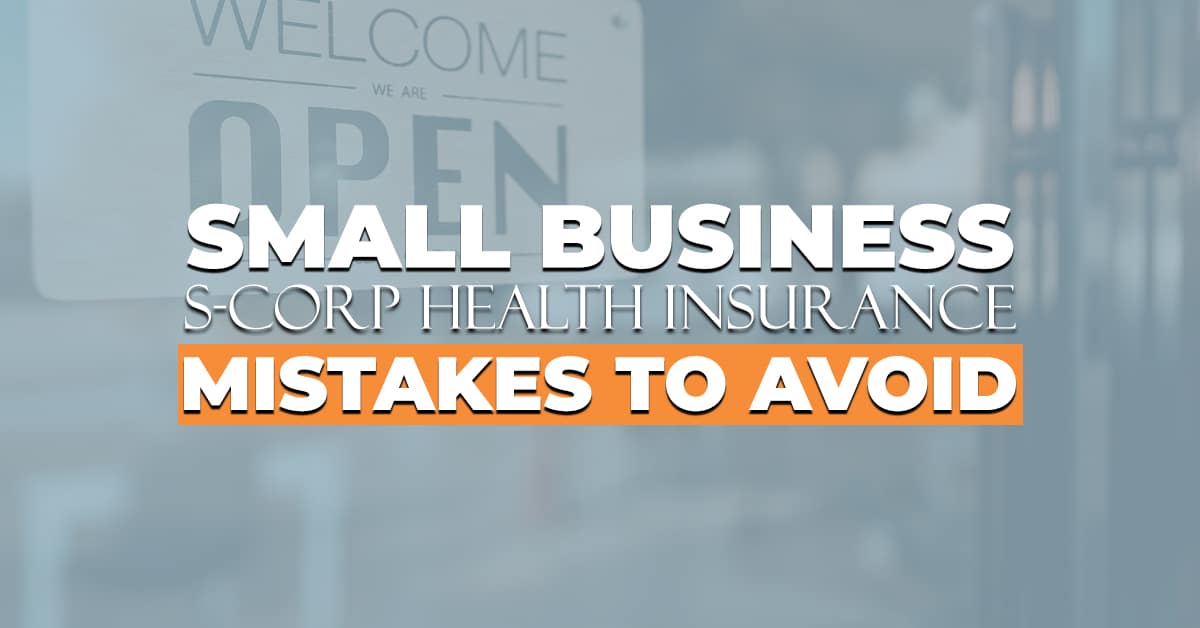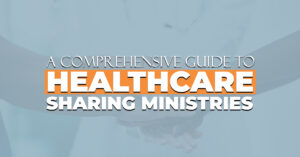A Family Member S Corporation Health Insurance Mistake You Need to Avoid

If you own an S corporation, you know you are required to follow certain rules and regulations. However, there can be some confusion over certain aspects. Below, we’ll be discussing one of the biggest mistakes that gets made time and again by those who aren’t aware.
Let’s say you have an adult child who is working for the S corporation you own. This child has no stock in the company, and your S corporation covers the child with a group health policy. You have to keep in mind that their health insurance is not deductible by the S corporation as health insurance, strange as it might sound. Instead, since this is your family member, the S corporation is required to consider the cost of family member health insurance as W-2 wages.
If you haven’t set things up properly, it would mean your family is out the money it paid for health insurance. Naturally, you want to avoid this. Fortunately, this can be remedied with the use of a corporate tax deduction by using Form 1040. Let’s get a closer look at how this works.
Health Insurance for Owners of S Corporations
Anyone who owns more than 2% of an S corporation needs to take certain steps to deduct their own health insurance premiums.
For the first step, insurance costs need to be added to your S corporation’s books.
The S corporation will establish a health insurance plan. This can be done by making premium payments for the accident and health insurance policy that covers you, as well as your spouse and dependents. Another way this can be done is by you making premium payments to the insurance company. You can then provide an expense report with proof of those payments. The S corporation would then reimburse you for those premium payments.
The second step requires that the S corporation includes all of the health insurance premiums on your W-2 as taxable income. However, you have to keep in mind that this income is not taxed for Social Security or Medicare.
Third, you will need to claim this deduction on Form 1040. However, you need to be sure you qualify for this.
Do You Qualify?
If you or your spouse are eligible for employer-subsidized health insurance, you aren’t allowed to take this deduction. This is true even if your spouse doesn’t opt for their employer’s insurance.
Additionally, the insurance premiums can’t be greater than the amount of your W-2 earned income from your S corporation.
What About Family Members?
Remember, the rules for self-employed health insurance above apply to those shareholder-employees who own more than 2% of the S corporation. However, there is something that not a lot of people realize.
If you have family members working for the S corporation, they are technically considered to own the same percentage of stock in the company that you own. This is according to Section 318 of the tax code. Therefore, certain members of your family who are working for your S corporation are required to follow the same rules you face for deducting health insurance.
The family members included under this rule are your spouse, children, grandchildren, great-grandchildren, parents, grandparents, and great-grandparents.
Let’s look at an example.
If your grandparents own 100% of an S corporation, and you work for that corporation, it will cover you under its group health insurance policy. You are considered to own 100% of the corporation even though you don’t have any stock. According to the rules presented above, the corporation is required to include the value of your health insurance as W-2 income, so it can then deduct the health insurance expense as a wage expense.
This will also be true if your spouse owns 3% of an S corporation where you work, and you would still be considered a shareholder.
What Is the Attribution Deduction?
According to the IRS, individuals can take the self-employed health insurance deduction if they own stock by attribution, as long as they meet all of the requirements.
If your son works for your fully-owned S corporation and has an annual salary of $50,000 per year, you will provide his health insurance as part of the group plan. Let’s say it costs $5,000 per year. Due to the attribution rule, your son is considered to own 100% of the corporation, so you need to include the $5,000 as income on his W-2 as box 1 wages. You will then deduct the $5,000 as a wage expense.
What If You’ve Been Doing It Wrong?
These rules and regulations have been on the books for a while, but a lot of companies still get this wrong. If you have been handling these taxes incorrectly, it’s time to get things in order.
If You Haven’t Accounted for Attribution
You will want to amend the S corporation tax return to claim the insurance expense as a wage expense. The family member’s W-2 also needs to be amended and the insurance amount added. Also, amend the family member’s Form 1040 to the correct wages and claim the self-employed health insurance deduction if they qualify.
If You Counted for Attribution, but Have No Form 1040 Deduction
You will need to change the family member’s Form 1040 to claim the self-employed health insurance deduction if they qualify. Keep in mind that if the updated form shows a refund, there is a limited time to file and claim the refund. You will have three years from the filing date of the return or two years from the date the taxes were paid.
Most Important Elements to Keep in Mind
Anyone who owns more than 2% of an S corporation needs to make sure the cost of the insurance is included in the corporation’s books and needs to include the premiums on the W-2 form. When eligible, you must also claim the health insurance deduction as an above-the-line deduction on Form 1040.
Remember that it applies to all of the family members mentioned above who work for the S corporation and who have health insurance coverage. It doesn’t matter whether they own stock in it or not.
Make the necessary changes sooner rather than later, so you don’t run afoul of the IRS.






